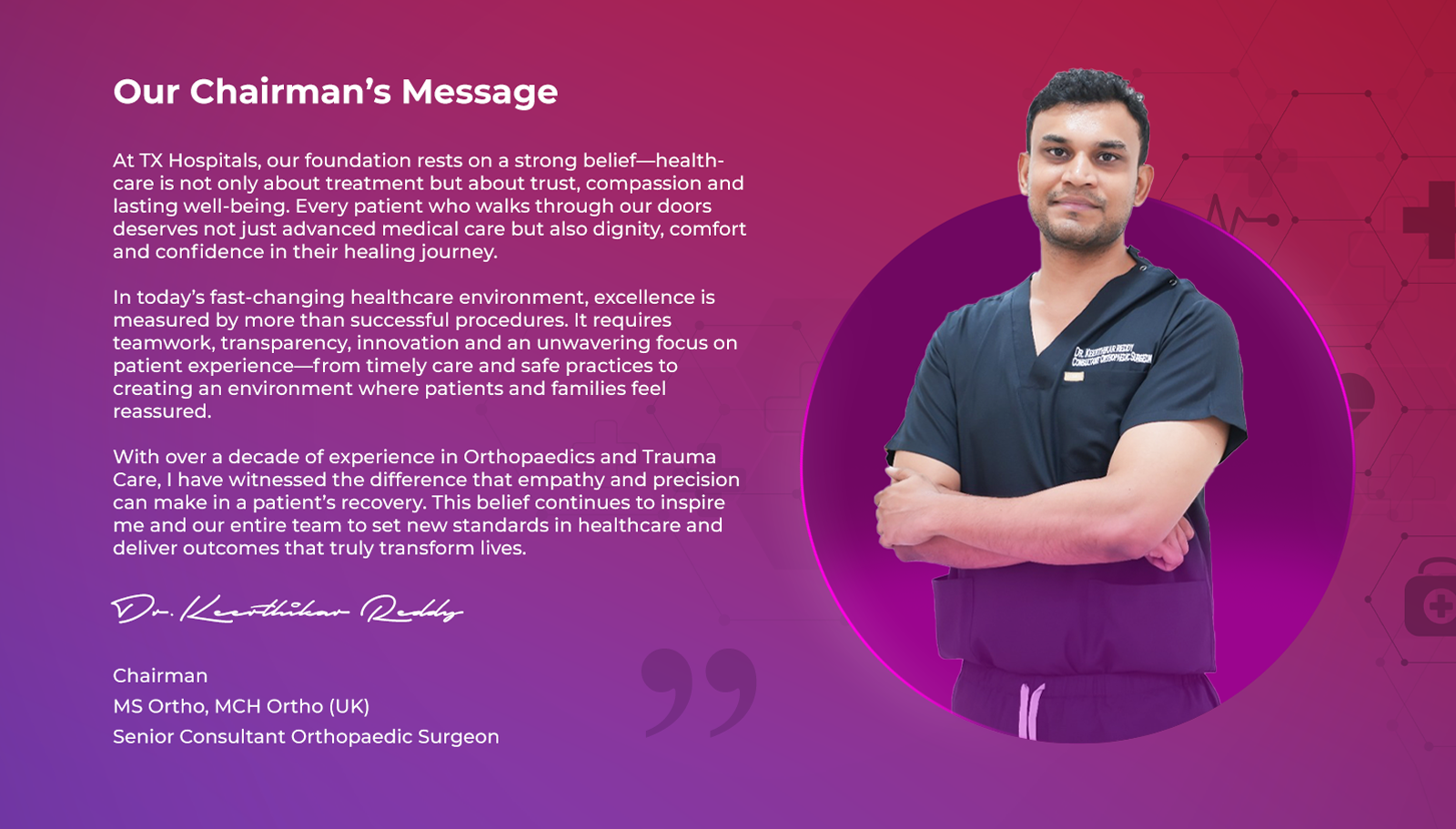Our Specialities
At TX Hospitals, we bring together medical expertise, modern technology and patient-first care under one roof. Our Centres of Excellence are dedicated to delivering comprehensive treatment across major specialties, ensuring every patient receives the best possible outcome.

Cardiac Sciences
Advanced heart care with modern diagnostics and minimally invasive treatments.

Gastro Sciences
Complete digestive and liver care with endoscopy and advanced surgery.

Ortho Sciences
Expert bone, joint and spine solutions with surgical and rehab support.

Nephrology
Expert treatment for kidney diseases, dialysis and renal transplants.
Find Diseases & Conditions By Alphabet
Search Diseases and Conditions
Quickly find the information you need. Search our database to explore detailed information on various diseases and conditions, including symptoms, causes, and treatment options.
Why Choose Us?
At TX Hospitals, we are redefining healthcare by combining clinical excellence, advanced technology and patient-first values. With a strong presence across Hyderabad, we have become one of the most trusted names for holistic, world-class healthcare.
0
Locations
Delivering advanced, accessible care across Hyderabad.
0
Beds
Modern facilities designed for comprehensive treatment.

0
Happy Patients
A legacy of trust, healing and personalized care for patients and families.
0
Successful Surgeries
Expertise in complex, robotic and minimally invasive procedures.
0
International Patients
A trusted destination for patients from around the world.
0
Doctors
Experienced doctors dedicated to personalized and expert care.
Real stories of recovery and hope, where patients share their healing journeys with TX Hospitals.

Health Library
A reliable resource of easy-to-read articles on diseases, symptoms and treatments for informed health decisions.
Frequently Asked Questions (FAQs)
Our Locations
Find Hospital Near You


TX Hospitals, Uppal

TX Hospitals, Kachiguda

TX Hospitals, Banjara Hills

